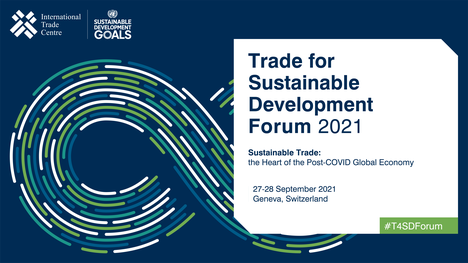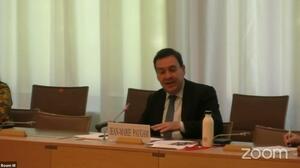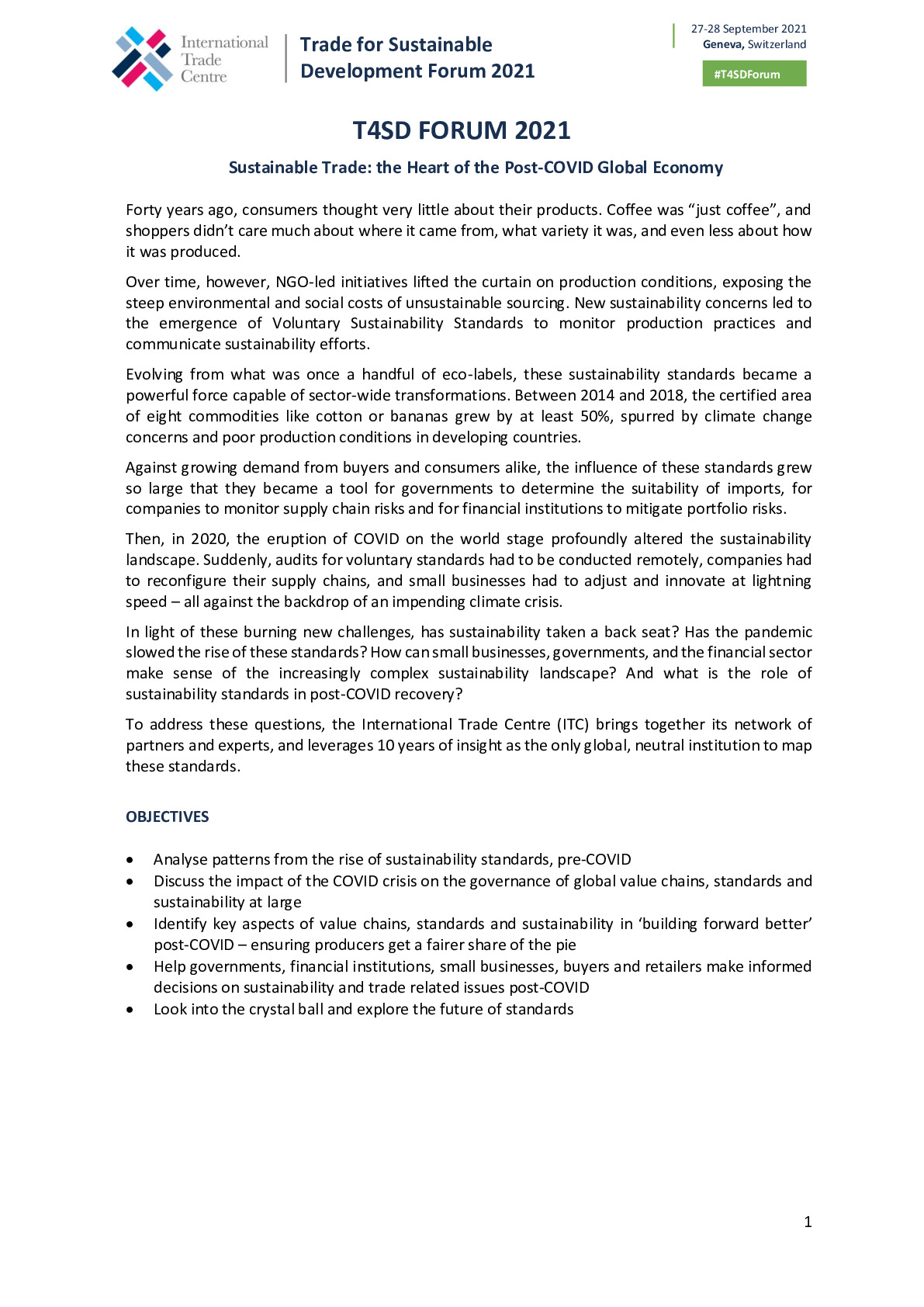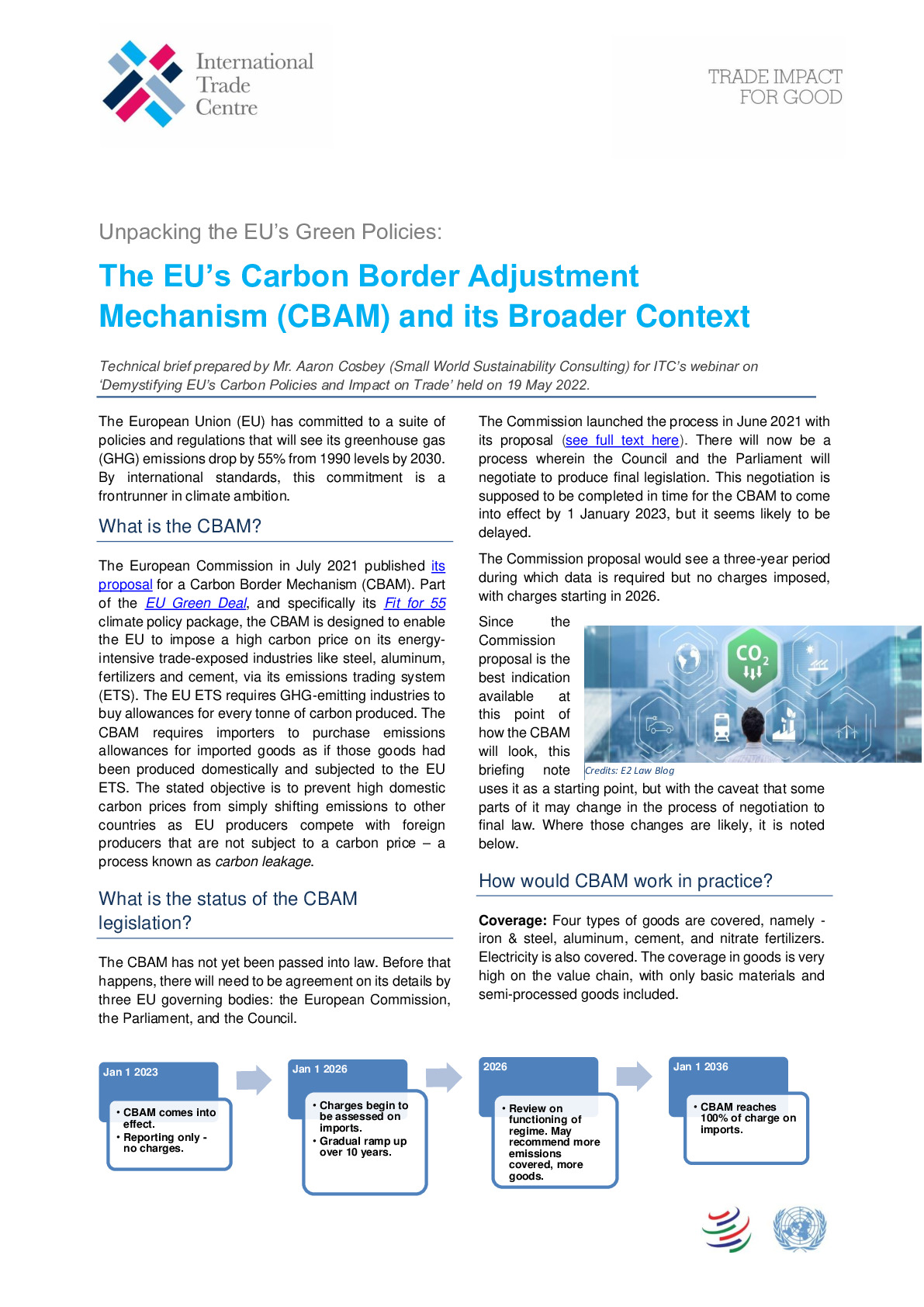<p><strong>The International Trade Centre (ITC) is hosting a webinar on ‘Transitioning to the Circular Economy: The role of Trade and Investment Policies’ on Wednesday, 13 July from 10 – 11.30am CET.</strong></p><p><strong>Register on </strong><a href="https://intracen.zoom.us/webinar/register/WN_Qe7D29BLQ9eNVaYRle7Vow">ht… receive the link to participate in the webinar.</strong></p><p>The gradual shift towards a green economy has important implications for industrial policy in developing countries. <strong>Integrating climate change considerations will be a prerequisite for countries to strengthen competitiveness in decades to come, and leverage opportunities that arise in emerging green industries. </strong>Governments are increasingly reviewing avenues through which to integrate green considerations into the industrial policy framework – including through greening existing industries, and accelerating growth and development in green products, services, and technologies.</p><p>Circular economy principles are integral to policy measures relating to greening. <strong>The scope of the circular economy has evolved considerably over time </strong>from its initial focus on minimizing waste generation to a wider approach on making resource use more sustainable through enhanced resource efficiency, and increased demand for related products and services such as recycling, refurbishing, and remanufacturing. <strong>With increasing dependency on global value chains, the gradual uptake of circular economy principles will have an impact on trade patterns. </strong>Impacts can include reduced trade in primary raw materials, increased trade in secondary materials, increased trade in waste for recycling and second-hand goods, as well as increased trade in products and services in emerging sectors such as waste management and refurbishment.</p><p><strong>Forward looking industrial policies, accordingly, must be attuned with such predicted shifts in trade flows; and trade and investment policies need to be aligned to enable exporters to adapt to and leverage opportunities arising from the circular economy. </strong>Already efforts are underway at the regional levels to build in circular economy principles, such as through the European Union’s Circular Economy Action Plan, the ASEAN Framework for Circular Economy, and the African Circular Economy Alliance; as well as efforts at the national level. Developing countries, however, may lack the technical, financial, and human capacity to effectively implement national plans and policies related to the circular economy and/or translate circular economy principles signed onto at the regional/global level into their national policy frameworks including on trade.</p><p>This webinar will unpack how trade-related policy options and strategies can be effectively leveraged by developing countries to adopt and implement more circularity in their policy frameworks; and assess the constraints/challenges faced by developing countries in facilitating the required policy frameworks and effectively employing circular economy principles to set the foundation for more targeted dialogues and engagements to support developing countries embarking on these crucial reforms.</p><p>For further information on this webinar, please refer to the attached Concept Note and Agenda.</p>
Sustainability
The International Trade Centre (ITC) helps countries adopt and strengthen their trade and investment legal and regulatory frameworks to best integrate green growth and harness trade as a way towards a sustainable and inclusive economy. Trade, and accompanying economic growth, can have a significant impact on the environment. Developing countries can align their trade and investment policies with green economy policies to ensure they effectively address environmental challenges and benefit from a circular economy.
Transitioning to the Circular Economy: The role of Trade and Investment Policies
Facilitating Sustainable and Inclusive Trade for our Planet
Geneva
<p>This one-day event hosted by the World Trade Organization and the International Trade Centre focuses on how to contribute to an inclusive transition towards sustainable trade in the exchange of goods and services that generates economic, social, and environmental benefits. </p><p>It brings together leaders, experts, and practitioners to discuss how sustainable trade can be facilitated to help companies and governments meet net-zero commitments made in the UN Climate Change Conference (COP26) in ways that support small businesses and poorer countries.</p><p>Event location: Room W, WTO, Geneva - and online</p><p>Register for in-person participation <a href="https://wto.formstack.com/forms/wto_itc_facilitating_sustainable_and_in… for online participation via Zoom <a href="https://worldtradeorganization.zoom.us/webinar/register/WN_Z9VEyRLtQCqp… the event live on YouTube <a href="https://www.youtube.com/watch?v=j0tYpgl2Wew">here</a>. </p>
ITC @ Aid for Trade Global Review 2022
Geneva
<p>The focus of this year's Aid for Trade Global Review at the WTO is ‘Empowering Connected Sustainable Trade’. ITC and partners are contributing several sessions to the three-day event on concrete solutions for inclusive, green and digital trade. ITC also invites you to coffee tasting sessions with coffee from projects in Africa and Latin America.</p><p>The World Trade Organization's Aid for Trade Global Reviews are monitoring exercises that highlight areas where developing and least developed countries need support to overcome supply-side constraints that limit their participation in global trade. They help galvanize support to address these issues so that developing countries derive maximum benefit from trade. </p><p>Find more information on ITC's participation <a href="https://intracen.org/news-and-events/news/itc-and-partners-aid-for-trad…;
Micro, Small and Medium-sized Enterprises (MSME) Day 2022
Programme
ITC focuses on four priority areas to scale up support to small firms, for MSME Day and beyond. We ask all of you who celebrate MSME Day to do the same – and focus on women, youth, digital and green initiatives. This the key to creating a wave of ‘good trade’ that is truly inclusive and sustainable.
B2B e-commerce for small businesses
What: Small firms can learn about opportunities and requirements to succeed in B2B e-commerce.
Where: Virtual event (register below) or Facebook Livestream
When: 13:30-14:30 CEST / 19:30-20:30 CST
Register: here
Partners: International Trade Centre and Alibaba – as part of their joint Global Digital Trade Accelerator for MSMEs in Developing Countries.
DHL MSME Virtual Helpdesk
What: International shipping, e-commerce and customs clearance: Receive answers to your trade-related questions live with DHL experts.
Where: Three virtual sessions - 8:00-10:00 CEST & 12:00-14:00 CEST & 17:00-19:00 CEST
When: 27 June 2022
Register: here
Partners: International Trade Centre, DHL
Resilience and Rebuilding: MSMEs for Sustainable Development
What: Innovation, education, diaspora contributions are among the topics that will be discussed. Entrepreneurs and those who support them will be speaking at this day-long event.
When: 27 June, 10:00-18:00 EDT
Where: United Nations Headquarters, New York
Online: UN Web TV livestream
Register: here
Social media assets: MSME Day 2022 Trello board
Partners: International Trade Centre, Permanent Mission of Argentina to the United Nations, United Nations Department of Economic and Social Affairs, International Council for Small Business, International Labour Organization, United Nations Conference on Trade and Development, United Nations Industrial Development Organization, United Nations Office for Partnerships.
Small Business Champions: 2022 competition
What: ‘Green’ business ideas competition for small business and supporting organizations. It promotes best practices in trade, and raises awareness of the challenges along the way.
When: 14:00-15:00 CEST
Where: Virtual event (register below) or YouTube Live Stream
Register: here - webinar ID: 863 8118 9790
Partners: International Trade Centre, World Trade Organization’s Informal Working Group on Micro, Small and Medium-Sized Enterprises, International Chamber of Commerce
Video
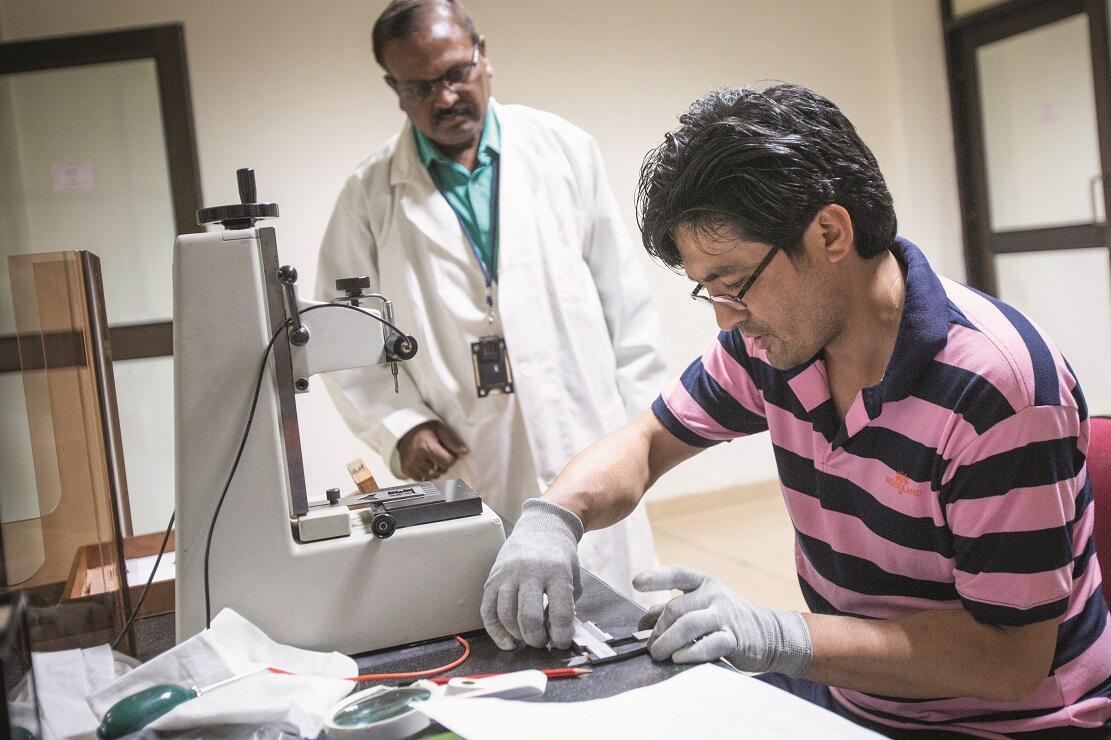

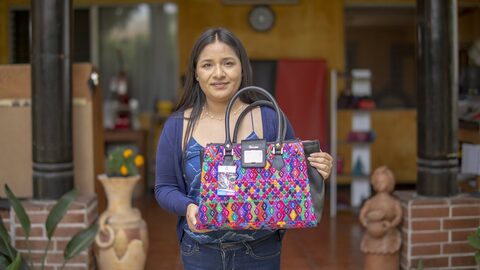

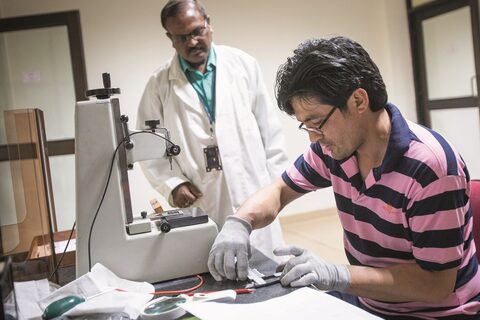
<p>27 June marks the annual celebration of micro, small and medium-sized enterprises.</p><p>Resilient recovery is the focus of this year’s events. We honour the entrepreneurs in societies everywhere as they face the triple threat of Covid, conflict and climate.</p><p>This is the fifth anniversary of MSME Day, which the UN General Assembly created to build awareness of the contribution of small businesses to job creation, economic growth and thriving communities. </p><p>The International Trade Centre is a leader of the global celebration of this international day, together with small businesses, governments and civil society.</p><p> </p>
Trade for Sustainable Development (T4SD) Forum 2021
The International Trade Centre’s (ITC) Trade for Sustainable Development (T4SD) Forum is one of ITC’s leading global events on sustainable value chains, exploring the latest hot topics in sustainable trade, bringing together leading speakers from different sectors.
T4SD will be back in the fall of 2022! Stay tuned for more information regarding dates and speakers.
T4SD Forum 2021
ITC’s T4SD Forum 2021 Sustainable Trade: the Heart of the Post-COVID Global Economy was held September 27-28, with the WTO Public Forum 2021.
Participants from over 100 countries attended the hybrid event, including stakeholders from the trade and development community, small business owners, high-level government officials, policy makers and inspiring changemakers
The Forum explored the status of the sustainability agenda in a post-COVID world, and the role of sustainability standards in building forward better.
Sustainable Trade: the Heart of the Post-COVID Global Economy
27 & 28 September 2021- Hybrid
Photo gallery
Emerging Stronger from the COVID-19 Crisis
07 & 08 October 2021 – Virtual
Sustainability: The New Normal in a Post-2030 World
07-09 October 2019, Geneva, Switzerland
Act sustainably: Produce - Trade - Consume
01-03 October 2018, Geneva, Switzerland
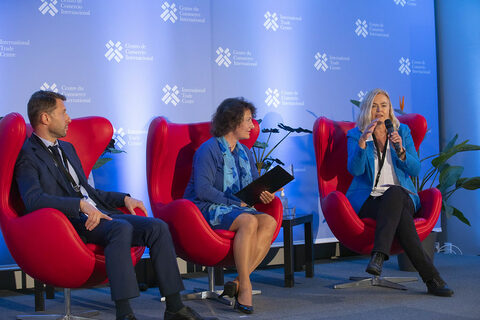
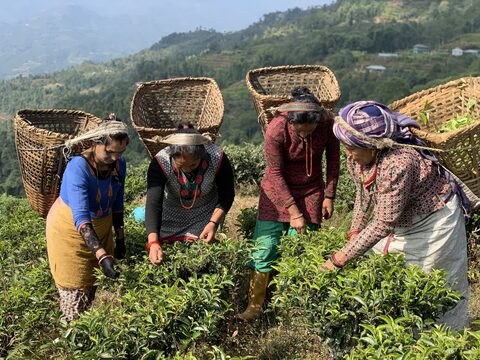
ITC Trade for Sustainable Development (T4SD) Forum explores the latest hot topics in sustainable trade.
Demystifying the EU's Carbon Policies and Impact on Trade
vnathaniel [at] intracen.org (vnathaniel[at]intracen[dot]org)
itctradepolicy [at] intracen.org
Programme
Paolo Vergano

Aaron Cosbey

Sarah Mohan

<p>The International Trade Centre (ITC) hosted a webinar on ‘Demystifying the EU’s carbon policies and impact on trade' on Thursday, 19 May from 14H00 - 16H00 CET. This was the second webinar in ITC's ‘Unpacking the EU’s Green Initiatives' webinar series. </p><p><strong>In today’s increasingly complex, fast-paced and highly regulated world, the ability of countries, producers, traders and service providers to access markets and take advantage of the opportunities provided in trade agreements is premised on the ability to be aware of and adapt to environmental rules and requirements.</strong> <strong>For developing countries, however, such </strong><a href="https://intracen.org/resources/publications/sme-competitiveness-outlook… regulations are often perceived as obstacles to their business</strong></a><strong>.</strong> Accordingly, targeted support is required for developing countries, particularly SMEs, to understand and comply with these regulations, ensure that it does not become a barrier to trade, and enable businesses to leverage opportunities arising from green and sustainable trade. </p><p><strong>The EU has been pioneering efforts to facilitate this transition to green and sustainable trade through a host of regulatory initiatives.</strong> ITC's first webinar in this series introduced the various EU regulatory initiatives underway to facilitate the green transition covering the measures to achieve carbon neutrality, develop sustainable supply chains, and strengthen trade in sustainable products, among others. <strong>In the second webinar, ITC will delve into the specific EU policies and regulatory initiatives being implemented to achieve the carbon neutrality through trade. </strong></p><p>The <a href="https://ec.europa.eu/info/strategy/priorities-2019-2024/european-green-… Green Deal</a> sets out a framework for Europe to achieve net zero greenhouse gas emissions by 2050 (in other words – carbon neutrality). An intermediate target has been set to reduce GHG by at least 55% by 2030 compared to 1990 levels, and the <a href="https://ec.europa.eu/commission/presscorner/detail/en/IP_21_3541">EU’s ‘Fit for 55’ package</a> was introduced as a series of interconnected proposals to achieve this goal. Rules are being created to achieve these goals, including through mechanisms to reduce emissions, investments in green technologies, and trade. Regulatory initiatives with direct trade implications - such as the Carbon Border Adjustment Mechanism (CBAM), the EU Renewable Energy Directive, and the revision of the Emissions Trading System, are all examples of measures proposed by the European Commission in this context. These carbon regulatory measures may pose market access risks for exporting SMEs, but also present business opportunities for companies in identifying and reducing carbon footprints now to gain secure, preferential trade access later. Overcoming these risks and leveraging business opportunities, however, requires significant actions by SMEs to be able to assess and reduce their carbon footprints, and demonstrate their carbon credentials in a manner compliant with the prospective EU regulations. </p><p><strong>At this webinar, ITC presented the EU’s carbon related regulations in the context of its application in the trade policy framework, and domestic measures required by developing countries to create a conducive framework for businesses, particularly SMEs, to align with carbon related regulations and become more competitive players in the market. </strong></p><p>The presentations delivered at the webinar are attached. </p><p> </p><p> </p><p> </p><p> </p>





